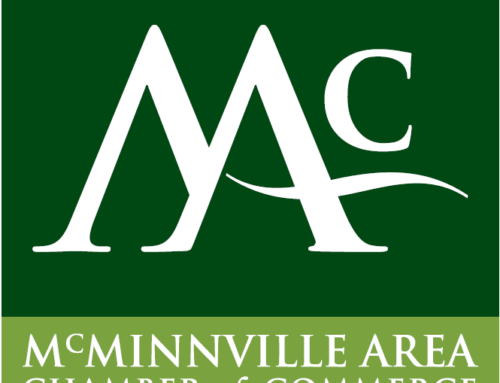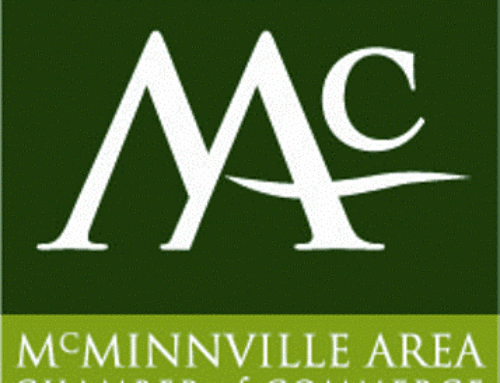Legislative Update – April 27, 2015
Review of past week (April 20-24):
- Tuesday, April 21st was the first major deadline of the session. Any bill not passed out of its original committee by the close of business on the 21st is now considered dead (with exceptions for Rules, Revenue, and Ways & Means Committees).
- Among the bills that survived the initial deadline on the last day:
- All minimum wage increase bills were kept alive.
- SB 718 – liens on employer property for wage claim allegations – alive
- SB 888 – mandatory “flex scheduling” was kept alive.
- SB 845 – penalties for employers whose employees utilize Medicaid – alive
- HB 2386B – BOLI ‘cease & desist’ authority, passed 6-5 out of House Business & Labor Committee.
- HB 3025 – prohibiting criminal background checks of job applicants in some circumstances, passed 6-5 out of House Business & Labor Committee.
- The bills that were kept alive are also in addition to the Mandatory Paid Sick Leave (SB 454/HB 2005) and Mandatory State Retirement Plan for private sector (SB 615/HB 2960) business mandates which were previously kept alive by moving them to the Ways & Means Committee.
What I see coming up (April 27 – May 1):
- I expect a House floor vote on Wednesday or Thursday on HB 2386-B, the bill that gives BOLI unilateral authority to issue cease and desist orders to businesses without going to court to gain approval. It further stacks the deck against employers by forcing them to go to a BOLI administrative law judge to appeal the order.
This bill was previously defeated in the House, but was resurrected with changes that have made it even more negatively impactful to business. By Wednesday April 29th, please contact Representative Weidner (503.986.1424) with your position on this bill (a NO vote would defeat the bill, a YES vote would pass the bill to the Senate and then signed).
- House Bill 3025-A, the bill that would have prohibited employers from conducting criminal background histories until after a conditional job offer had been made in all cases, has been scaled back considerably.
The bill now makes it illegal to use job application forms that inquire into the conviction history of a job applicant; makes it illegal to inquire into or consider the conviction history of a job applicant prior to conducting an interview; and makes it illegal to inquire into or consider the conviction history of an applicant for employment prior to making a conditional job offer to the applicant when no interview is conducted.
Although the bill has been scaled back, it still goes too far on infringing on employer rights to manage the workplace. There is also a private right of action in the bill to allow a job applicant to sue an employer for violation of any of these provisions.
The Financial Impact of Minimum Wage Bills:
Rarely is the Revenue Impact of Proposed Legislation completed so early in the session. This revenue impact report is from Senator Boquist’s office and calls out the impact of SB 610 if minimum wage was increased.
Note that the Impact Explanation states, “By the time the minimum wage increase is fully phased-in (tax year 2018), roughly 775,000 workers are expected to see an increase in their wages. In total, this increase amounts to roughly $2 billion in additional wages paid in 2018.” Read the full report here: https://olis.leg.state.or.us/liz/2015R1/Downloads/CommitteeMeetingDocument/67121
Other points of interest:
Senator Boquist’s Office passed on the following information for our Chamber members:
Senator Boquist wanted you to have this list of bills that have been labeled “Job Killers”. These bills have been identified by Associated Oregon Industries, the Oregon State Chamber of Commerce, Oregon Farm Bureau, and Oregonians for Food & Shelter etc…that the coalition it believes would kill jobs.
To track the status of the bills go to the Oregon Legislative Information System OLIS , select bills and then type in the number.
SB 718 Allows Liens on Personal Employer Property
Creates a dangerous and unfair precedent in the wage-and-hour arena by allowing employees to file liens on an employer’s real or personal property, based upon alleged yet unproven wage claims.
SB 845 Imposes New Fees on Large Employers
Requires employers whose employees obtain health insurance coverage through a public program to pay a fee to the state for that coverage.
HB 2007 Adds Employer Liability for Wage Discussions
Creates a new unlawful employment practice against an employer who takes any negative employment action against an employee for discussing or disclosing “in any manner” his or her wages or those of another employee. Many employers have this as a policy in their employee manuals, would need review and change.
HB 2009 Increases Statewide Minimum Wage
Increases Oregon’s current minimum wage from $9.25 to $15 per hour by 2018. Other minimum wage bills: SB 327, SB 332, SB 597, SB 610, SB 682, HB 2004, HB 2008, HB 2012
HB 2386 Authorizes New Cease & Desist Authority for BOLI
Subjects employers to potentially unjustified imposition of cease & desist orders by Bureau of Labor and Industries, which, once issued, could require costly court proceeding to have removed.
HB 2764 Increases Workers’ Compensation Costs
Unravels certain cost-saving provisions and resulting benefit increases due to Oregon’s 1990 Workers’ Compensation reforms, resulting in employers paying nearly 5% increases in workers’ compensation system costs without any expectation that increases will be offset by system savings.
SB 454 Implements Statewide Mandatory Paid Sick Leave
Increases employer mandates by requiring employers to provide employees with paid sick leave, and threatens employers with statutory penalties as well as litigation for alleged violations. Counterpart: HB 2005




